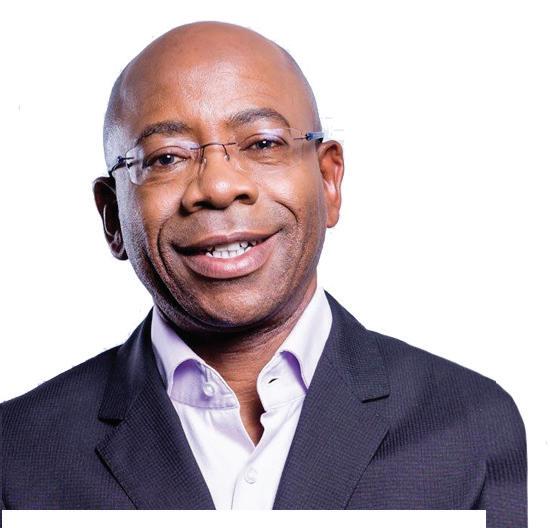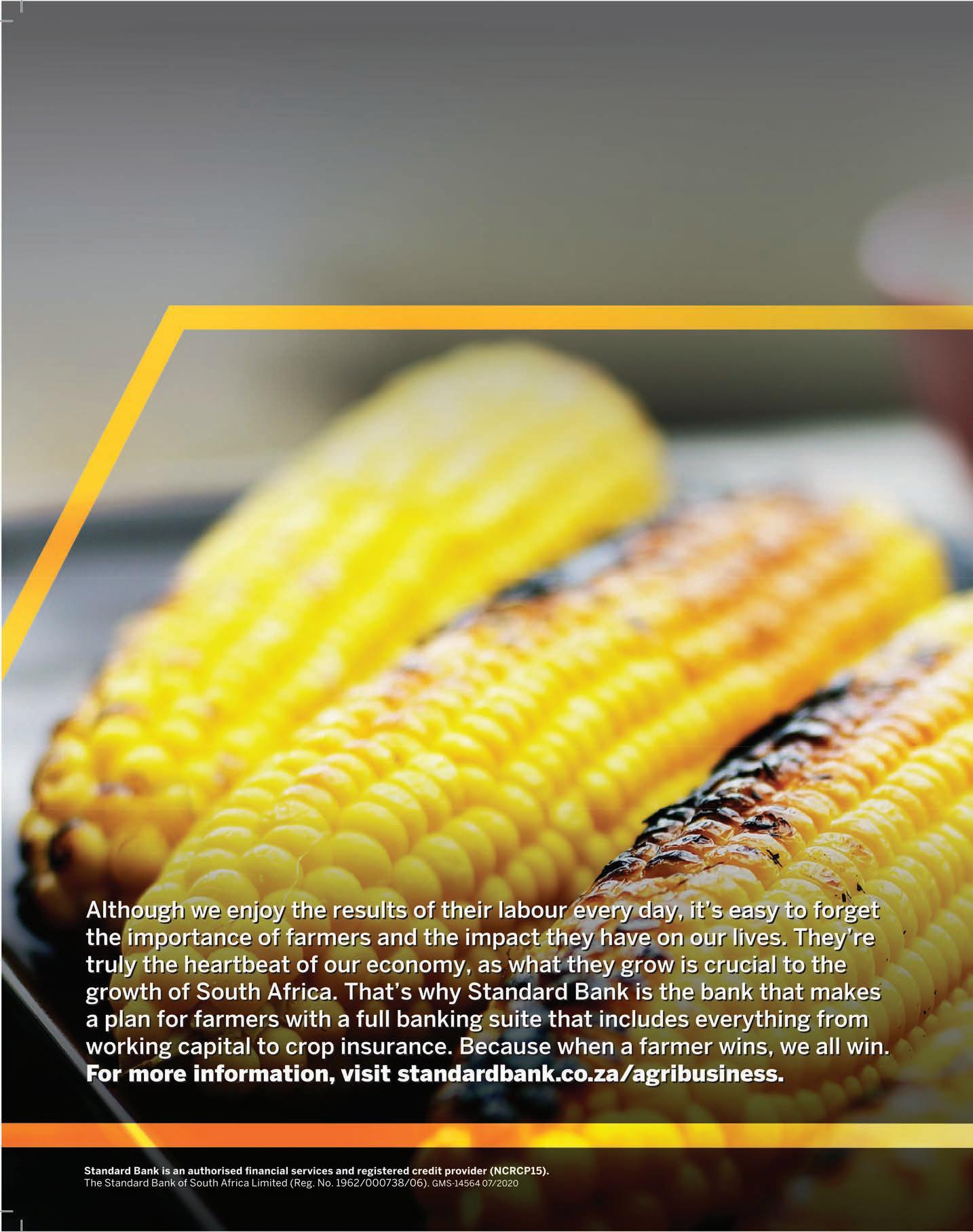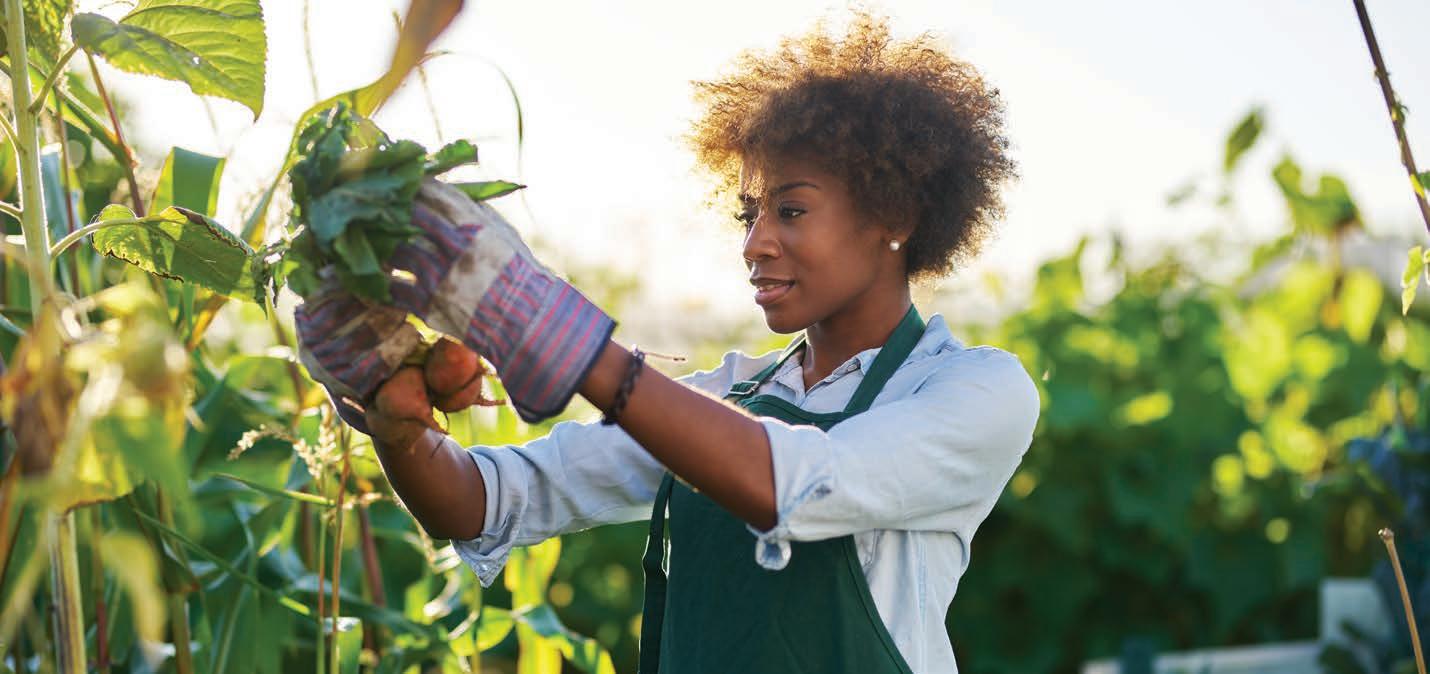
6 minute read
Social justice fi rst
SOCIAL JUSTICE AND
THE ECONOMY We cannot hope to revive the country’s economy if we don’t fi rst examine and fi x social injustice, writes Bonang Mohale
The #BlackLivesMatter movement that started in the United States and quickly spread throughout the world has shown once again that we cannot fi x the problems of economic justice in this country without fi rst addressing racial justice. Addressing racial injustice must form an important part of rebuilding South Africa’s economy.
The deck has always been stacked against poor people – this is the same in South Africa as it is in countries worldwide.
Despite government attempts to deal with youth unemployment through initiatives such as employment tax incentives, the Jobs Fund and Expanded Public Works Programme, Statistics SA data consistently shows that young people remain discouraged. Only about a third of employable young people have jobs. Almost half remain economically inactive.
WIDE WEALTH GAP
A recent report from a pair of Harvard academics has found that “just being in a poor neighbourhood virtually ensures that you’ll never make it up the socioeconomic ladder”. Boys from poor households who grow up in beleaguered, mostly black neighbourhoods, will earn roughly 25 per cent less than their peers who moved to better neighbourhoods as children.
As Thomas Piketty demonstrated in his best-selling book on inequality, Capital in the Twenty-First Century, “creating a system of capitalism that more equitably distributes wealth is our biggest challenge now”. As a growing body of research from outfi ts such as the Brookings Institute has shown, “more inequality means less opportunity”.
The wealth gap between whites and blacks is far worse than most people would guess. One reason for the difference is that a disproportionate number of blacks have little or no access to formal retirement savings plans. The majority of whites keep most of their wealth in housing. Most blacks live in rural areas and many in the townships do not own the houses they have always lived in and, therefore, can never use these as collateral. This is bad news for both the economy and our country, which has always been majority black.
The #BlackLivesMatter movement is a reminder of how social injustice cannot be viewed separately from economic injustice. Most black people in America are poor, just as most black people in South Africa are poor. Access to justice is often denied to poor people.
The problem in South Africa has never been coloured people or Indian people. All of us have been systematically excluded on the basis that we are not white.
The single most important reason why apartheid survived for 350 years is because of the “divide and rule” strategy, which ensured that blacks only fi ght for the crumbs that fall from the master’s table. Our biggest challenge is the concentration of poverty – the 10 per cent of the population that still occupy about 80 per cent of leadership positions and own about 70 per cent of large agricultural land.
It has never been easy for black people. The things that happen to us daily in real life, are not exactly a surprise to us. The depth and frequency of recent incidents against black people give expression to the old James Baldwin observation that “to be a Negro in this country and to be relatively conscious is to be in a rage almost all the time”. Baldwin’s observation is about America, but it could easily have been about South Africa.
Economic justice and racial fairness have always been the same thing. We will not be able to sort out many of the problems with inequality in our country if we do not make social justice one of the key issues when rebuilding our country’s economy.
*Bonang Mohale is chancellor of the University of the Free State, professor of practice at the Johannesburg Business School College of Business and Economics, chairman of The Bidvest Group Limited and past president of the BMF. He is the author of Lift As You Rise.
Th e single most important reason why apartheid survived for 350 years is because of the “divide and survived for 350 years is because of the “divide and rule” strategy.




EQUIPPING WOMEN FARMERS FOR LONG-TERM SUCCESS
UN Women and Standard Bank have joined forces to equip women farmers in Africa with the skills and resources needed to grow their businesses and succeed over the long-term
In October 2019, Standard Bank and UN Women partnered to empower more than 50 000 women farmers in Malawi, Uganda, Nigeria and South Africa through the use of modern and environmentally-friendly farming technologies that increase productivity and incomes.
Through the Climate Smart Agriculture (CSA) project, women farmers, authorities, local farmer organisations and cooperatives are addressing structural inequalities in rural economies in Africa, including access to quality farmland.
Standard Bank has provided funding worth US$3-million as well as ongoing support through financial literacy and other programmes.
“The CSA project supports Standard Bank’s drive to create a gender-equal Africa and aligns with our purpose of driving the continent’s growth,” says Sola David-Borha, chief executive of Africa Regions at Standard Bank Group. “We believe it will meaningfully contribute to the upliftment of communities and the achievement of sustainable economic growth across Africa.”
“This project is closely aligned to the UN Sustainable Development Goals, particularly when it comes to gender equality, access to decent work, and economic growth,” says Dr Vera Songwe, UN under-secretary-general and executive secretary of the UN Economic Commission for Africa.
In South Africa, the project delivered agricultural inputs to 2 753 women farmers in the first half of 2020. The inputs include drought-resistant seeds of various crops, organic manure, farming equipment, and training on climate-smart agriculture.
In addition to critical farming skills and tools, the beneficiaries receive training on key technical skills including financial literacy. This is an important component of the project as it will help to ensure the farmers’ long-term success.
About 950 women farmers in South Africa received training in business management and digital and financial literacy in the first half of 2020.
The UN Women office in the country has continued to work throughout the national lockdown, and Standard Bank has remained fully operational as a designated essential services provider. In response to the COVID-19 pandemic, digital technology is being used to conduct meetings where possible.
Besides teaching business skills, the programme is designed to increase productivity, facilitate access to higher-value markets and supply chains, and yield high-quality produce.
“By the end of the programme, we want to ensure that women farmers are well equipped to thrive in a changing climate,” says Keneilwe Nailana, senior manager of agribusiness at Standard Bank South Africa. “They will also be better placed to move up the value chain and access new markets and finance, and, ultimately, to grow their businesses.”
For more information:
www.standardbank.co.za











